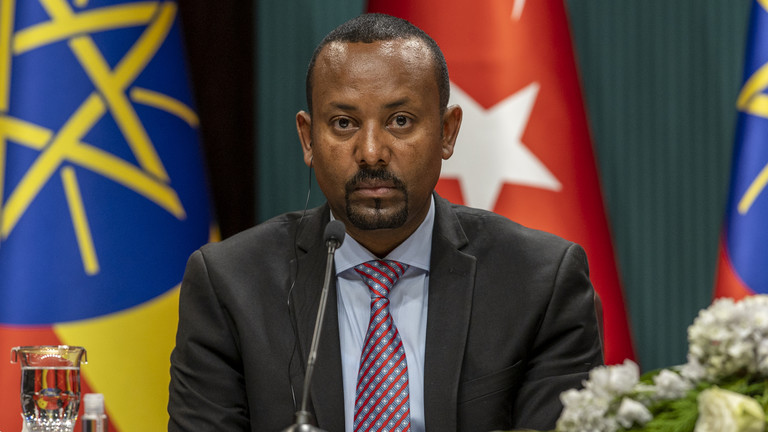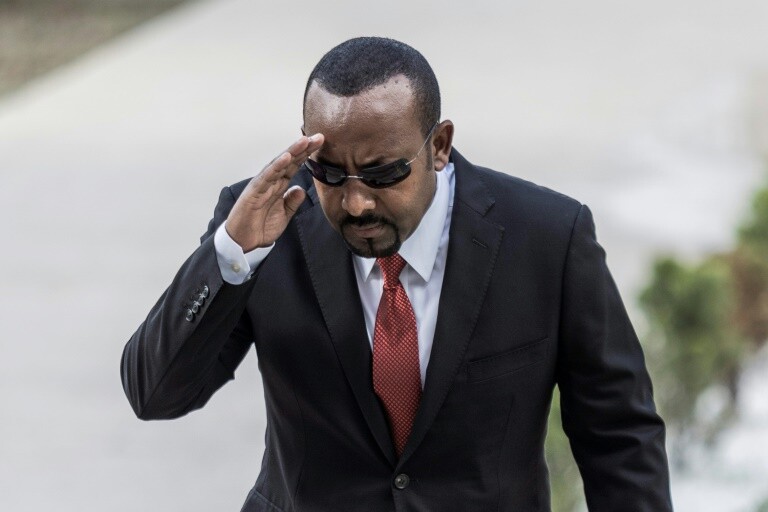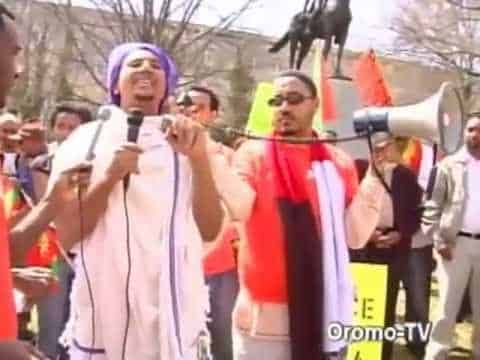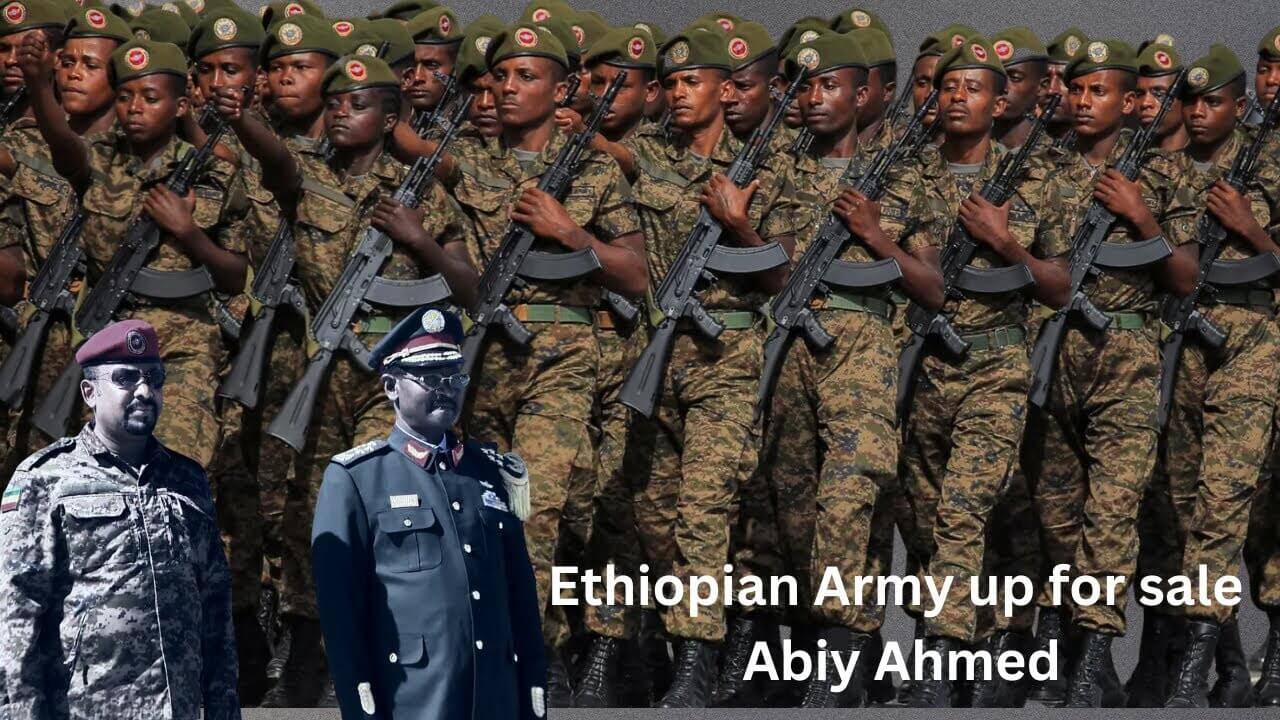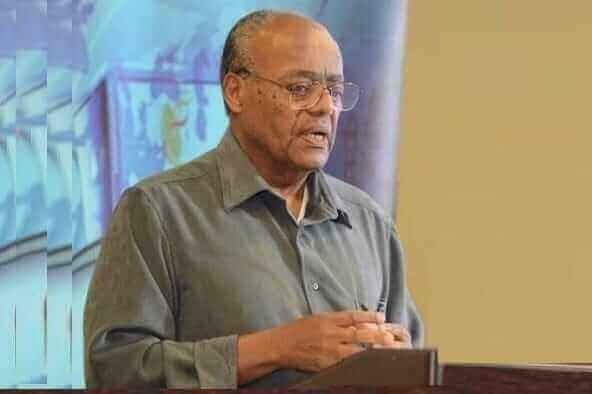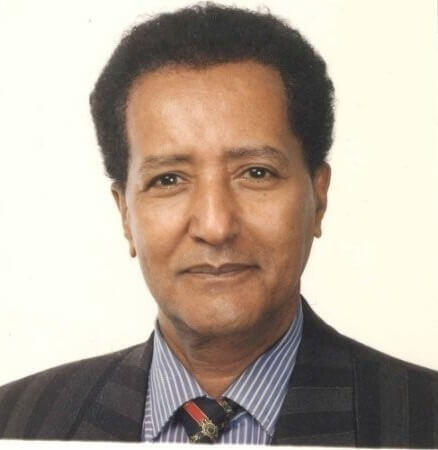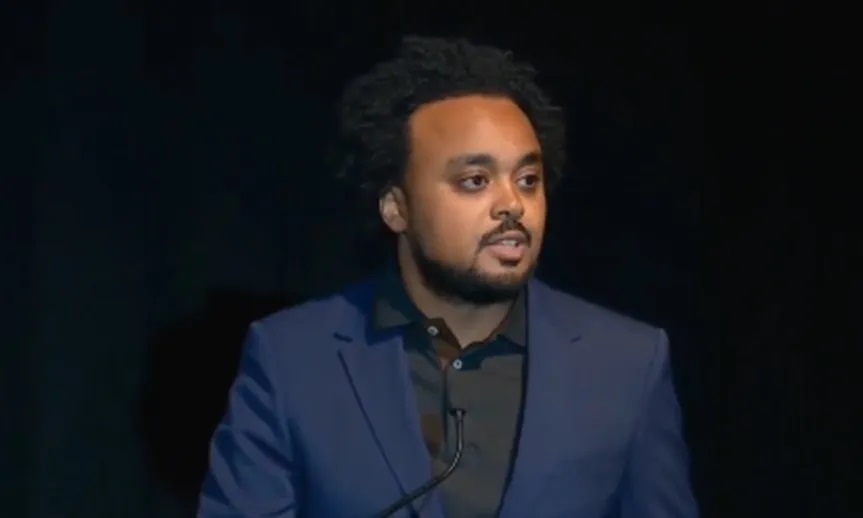 (The Habesha) – Peace is the cornerstone of global stability, and every act that promotes it deserves due recognition. However, when the steward of such accolade falls short, it raises the question of the legitimacy of their award. This is the case with Abiy Ahmed, the recepient of the 2019 Nobel Peace Prize. Recent events have called into question whether his accolade was deserved or if it should be revoked due to escalating internal conflicts and blatant disregard for democratic processes. Therefore, exploring the track record of Abiy Ahmed and the reasons behind the demand for the revocation of his Nobel Peace Prize may provide valuable insight into the merits and demerits of peace awards.
(The Habesha) – Peace is the cornerstone of global stability, and every act that promotes it deserves due recognition. However, when the steward of such accolade falls short, it raises the question of the legitimacy of their award. This is the case with Abiy Ahmed, the recepient of the 2019 Nobel Peace Prize. Recent events have called into question whether his accolade was deserved or if it should be revoked due to escalating internal conflicts and blatant disregard for democratic processes. Therefore, exploring the track record of Abiy Ahmed and the reasons behind the demand for the revocation of his Nobel Peace Prize may provide valuable insight into the merits and demerits of peace awards.
Overview of Abiy Ahmed’s Nobel Peace Prize
Background and Context
Awarding of the Nobel Peace Prize
The Nobel Peace Prize is one of the most prestigious awards globally, underlining a significant contribution to war resolution, peace-keeping, and other peace-related activities. In 2019, this great honor was bestowed upon Abiy Ahmed, the incumbent leader of Ethiopia. Prized for his effort in ending the 20-year war between Ethiopia and Eritrea, Abiy Ahmed was celebrated as a beacon of hope for peaceful resolution in Africa.
Achievements That Led to the Award
Underpinning Abiy Ahmed’s Nobel Peace prize was a repertoire of achievements, primarily his instrumental role in ending the Ethio-Eritrean War. His courageous act of accepting and implementing the Algiers Agreement, which had been a bone of contention between the successive governments of the two countries, was significant. This brave deed not only ended the protracted standoff but also opened up economic and diplomatic pathways between Ethiopia and Eritrea. Apart from resolving external conflicts, Abiy Ahmed also garnered praise for instigating reformative policies within his country, promoting democracy, liberating political prisoners, and uplifting the repression on media freedom.
Importance of the Nobel Peace Prize
Historical Significance
The Nobel Peace Prize, founded by Alfred Nobel, is often considered the pinnacle of recognition for peace efforts globally. Its historical significance lies in its aim to acknowledge and encourage activities promoting peace and resolving conflicts. Dating back to 1901, it has been awarded to influential figures like Martin Luther King Jr., Mother Teresa, Nelson Mandela, and many organizations like the United Nations, that have shown relentless efforts towards peace.
Criteria for Selection
The selection of the Nobel Peace Prize winner follows strict criteria. The Nobel Committee, appointed by the Norwegian Nobel Institute, considers candidates who have made considerable contributions to peace. The criteria include successful mediation of peace talks, activities that have brought conflicts to an end, efforts that promote fraternity between nations, or role in significant international peace congresses. Substantial contributions to disarmament and arms control are also highlighted. This underscores why Abiy Ahmed, with his paramount contribution to ending the Ethio-Eritrean war and internal peacekeeping, was a fitting recipient.
Arguments for Revoking the Nobel Peace Prize
The question surrounding whether Abiy Ahmed’s Nobel Peace Prize should be revoked hinges on a myriad of factors. Two pillars that form the backbone of this school of thought are criticisms of Abiy’s actions post-award and the impact any controversy has on the reputation of the Nobel Prize itself.
Criticism of Abiy Ahmed’s Actions Post-Award
Political and Military Decisions
After receiving the Nobel Peace Prize, Abiy Ahmed’s policy choices and military decisions have raised eyebrows, challenging the principles behind his recognition. For instance, the Prime Minister’s decision to launch a military offensive in the Tigray and Amhara region of Ethiopia has been met with wide condemnation. This act of aggression, contrasting with the peaceful posture that earned him the prestigious award, has sparked extensive debates on whether his Peace Prize was premature or unfounded.
Human Rights Concerns
Besides the controversial military decisions, Abiy Ahmed’s tenure has seen escalating concerns over human rights violations. Amnesty International and Human Rights Watch have both reported widespread abuses, including but not limited to extrajudicial killings and forced displacements. This contradiction seems to undermine the essence of the Nobel Peace Prize, reinforcing the argument for its revocation.
Impact on Nobel’s Reputation
Public Perception of the Prize
Abiy Ahmed’s actions post-award have led to a fluctuation in the public perception of the Nobel Peace Prize. Many are questioning the merit-based criteria used to select laureates, and whether the decisions taken stand the test of time. This clouds the integrity and credibility of the honor, as it could seem to implicitly condone actions that go against the values it promotes.
Precedents and Comparisons
There have been similar instances where laureates’ later actions disheartened their earlier peace drives. Aung San Suu Kyi, for instance, a Nobel laureate, faced international criticism for her inaction during the Rohingya Muslim crisis in Myanmar. This incident raises questions about whether there should be a mechanism to revoke the Nobel Peace Prize under certain circumstances, or if the distinction should be irrevocable regardless of any subsequent actions.
In conclusion, Abiy Ahmed’s recent actions contrast starkly with the laureate’s peacemaking efforts that earned him the Nobel Peace Prize. This discrepancy, in turn, has fueled arguments for the revocation of his award, and brought to light underlying limitations in the Nobel committee’s selection and accountability processes.
Counterarguments Against Revocation
Continuing with the narrative that Abiy Ahmed’s Nobel Peace Prize should be revoked, it’s essential to also consider counterarguments against such a course of action. The following points will help shed light on the defense of Abiy Ahmed and the implications of revoking his Nobel Prize.
Defense of Abiy Ahmed
Continued Efforts for Peace
One of the main defenses of Abiy Ahmed is his continued efforts towards peace within Ethiopia and its neighboring regions. Despite the turmoil and numerous conflicts, Abiy Ahmed has consistently profiled himself as an individual committed to the peace process. His work has involved mediation efforts, initiating diplomatic dialogues, and consistently advocating for peaceful resolutions. His supporters argue that these efforts are commendable and deserve recognition, regardless of the ongoing challenges.
Challenges in Governance
The defense of Abiy Ahmed also lies in the understanding of the sheer complexity and challenges associated with governing a diverse nation like Ethiopia, fraught with deep-seated ethnic tension and political turmoil. His supporters argue that it is an uphill task attempting to unify such a country, stemming from the decades-old systemic issues. Despite his controversial decisions, some assert he is striving to consolidate power to enable more significant reforms.
Implications of Revoking the Prize
Potential Consequences
Revoking the Nobel Peace Prize from Abiy Ahmed could have several implications. For one, it could potentially exacerbate the already tense political climate in Ethiopia. It might be perceived as international interference in the nation’s affairs. Creating such an image could further complicate efforts towards reconciliation and peace processes in the country.
Effect on Future Awards
Another critical element to consider is the impact such a decision could have on future awards and laureates. If the Nobel Committee sets a precedent for revoking awards based on post-award actions or evolving circumstances, it could undermine the integrity of the prize and dissuade potential awardees. It could also set unrealistic expectations for laureates to maintain a certain standard of behavior and performance, which may be a significant challenge in volatile geopolitical situations.
Hence, while there are legitimate concerns about Abiy Ahmed’s actions post-award, the decision to revoke his Nobel Peace Prize is not as straightforward as it might initially appear. Careful consideration of these counterarguments is essential to any discussion around the potential revocation of his award.
Conclusion
Summary of Key Points
In this discussion pertaining to if Abiy Ahmed’s Nobel Peace Prize should be revoked, several key points have been raised. Firstly, there’s a substantial recognition of the accomplishments that led to the awarding of Abiy Ahmed his Nobel Peace Prize—specifically his groundbreaking peace deal with Eritrea and domestic reforms.
Subsequently, there are severe criticisms on his actions post-award, particularly his political and military decisions that have led to escalating violence in Ethiopia’s Tigray region, raising significant human rights concerns.
Several voices clamor for a revocation due to the impact on Nobel’s reputation. However, it’s equally essential to highlight the counterarguments, primarily the defense of Abiy’s continued efforts for peace amid monumental challenges in governance. The potential consequences and the effect on future awards with revoking the prize are other points of contention.
Reflection on the Nobel Peace Prize’s Role
All these discussion points make us examine the role of the Nobel Peace Prize itself. The Prize is an international symbol of remarkable efforts to bring peace and harmony on a global level. It not only recognises the past achievements but also motivates and gives the awardees a larger platform to continue their peace-making efforts.
From this standpoint, should the Nobel Committee take into account the actions of laureates after the award? Or should they focus on the achievements at the time of the award? These are complex questions that do not have easy answers but are certainly worth exploring.
Future Considerations
Moving forward, the Nobel Committee will undoubtedly have to consider the rifts this debate has created. There must be a detailed examination into how laureates’ subsequent actions align with the values that the Prize upholds. This doesn’t necessarily mean that the laureates should be perfect but their actions should not fundamentally counteract the essence of peace and harmony.
In Abiy Ahmed’s case, whether his Nobel Peace Prize should be revoked is a contentious issue. But what it has undoubtedly done is to prompt a global conversation that asks us to rethink, reflect, and potentially revise how we assess the validity of Nobel Peace Prize laureates’ actions. 🕊️
Remember, any decision made would set a precedent for future awards — a fact that further underlines the magnitude of the ongoing debate about Abiy Ahmed’s Nobel Peace Prize.
The Habesha


